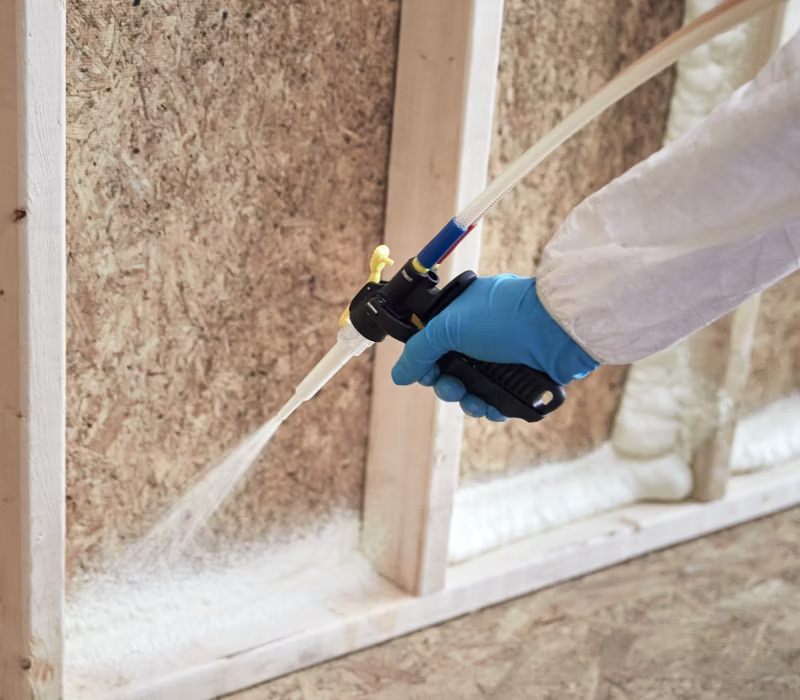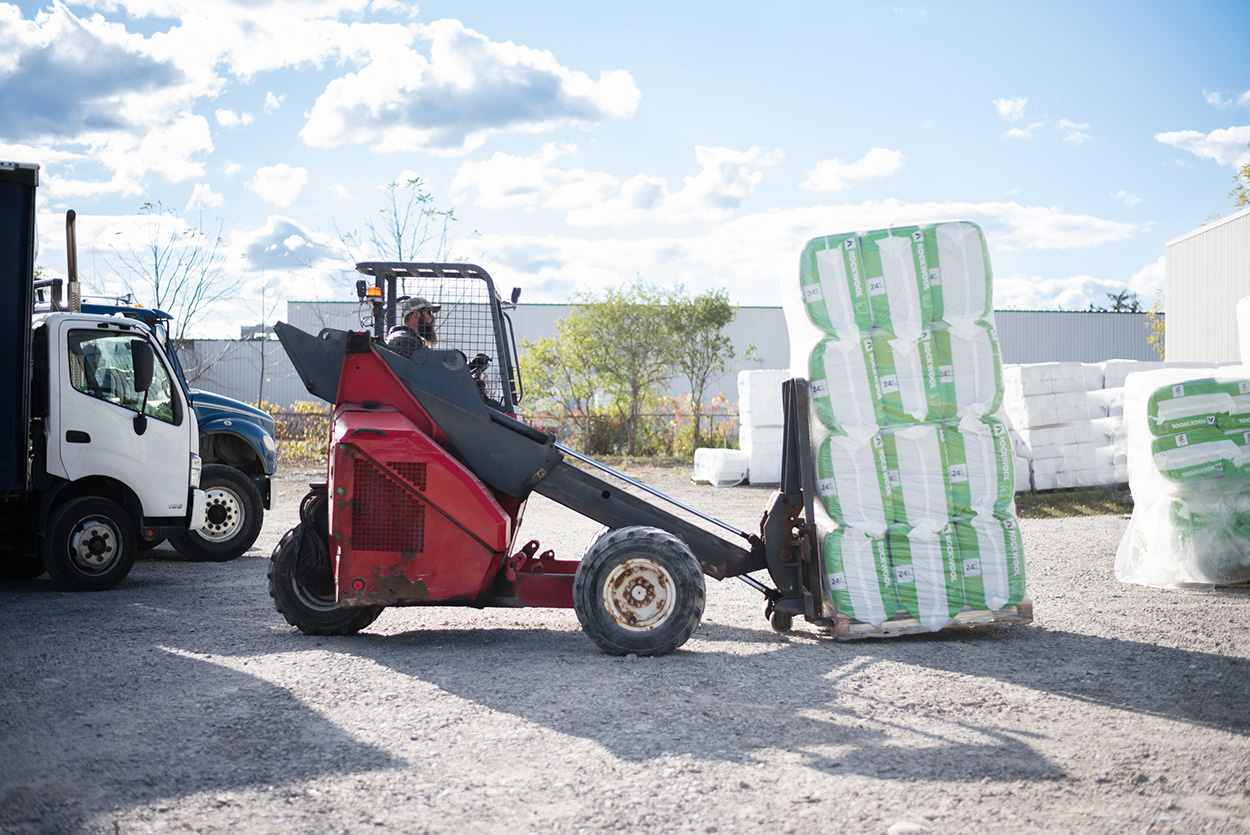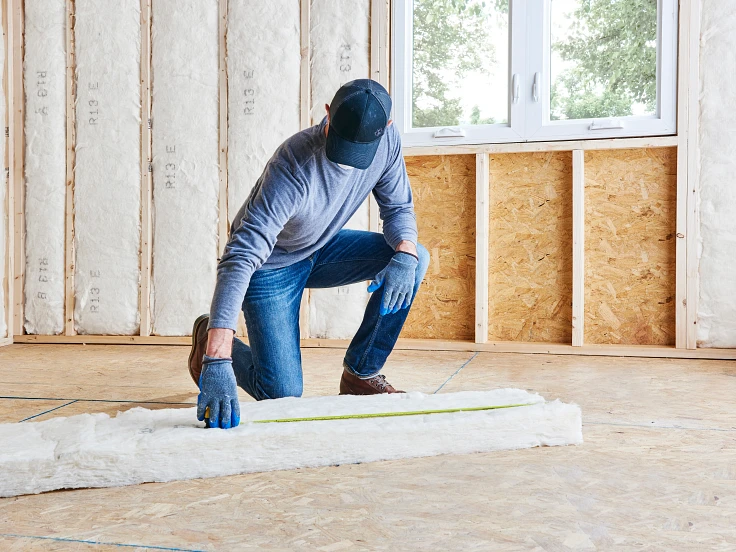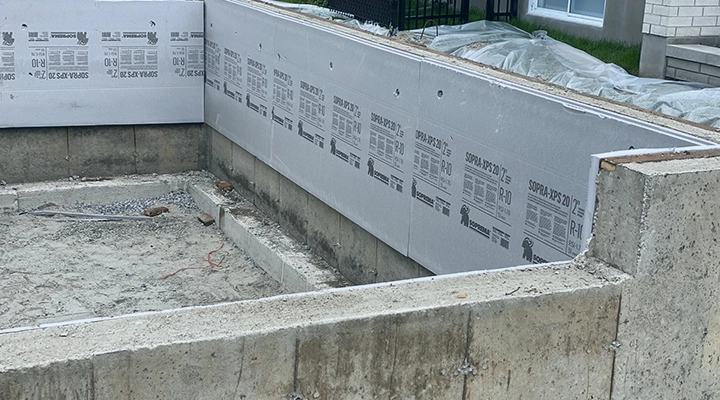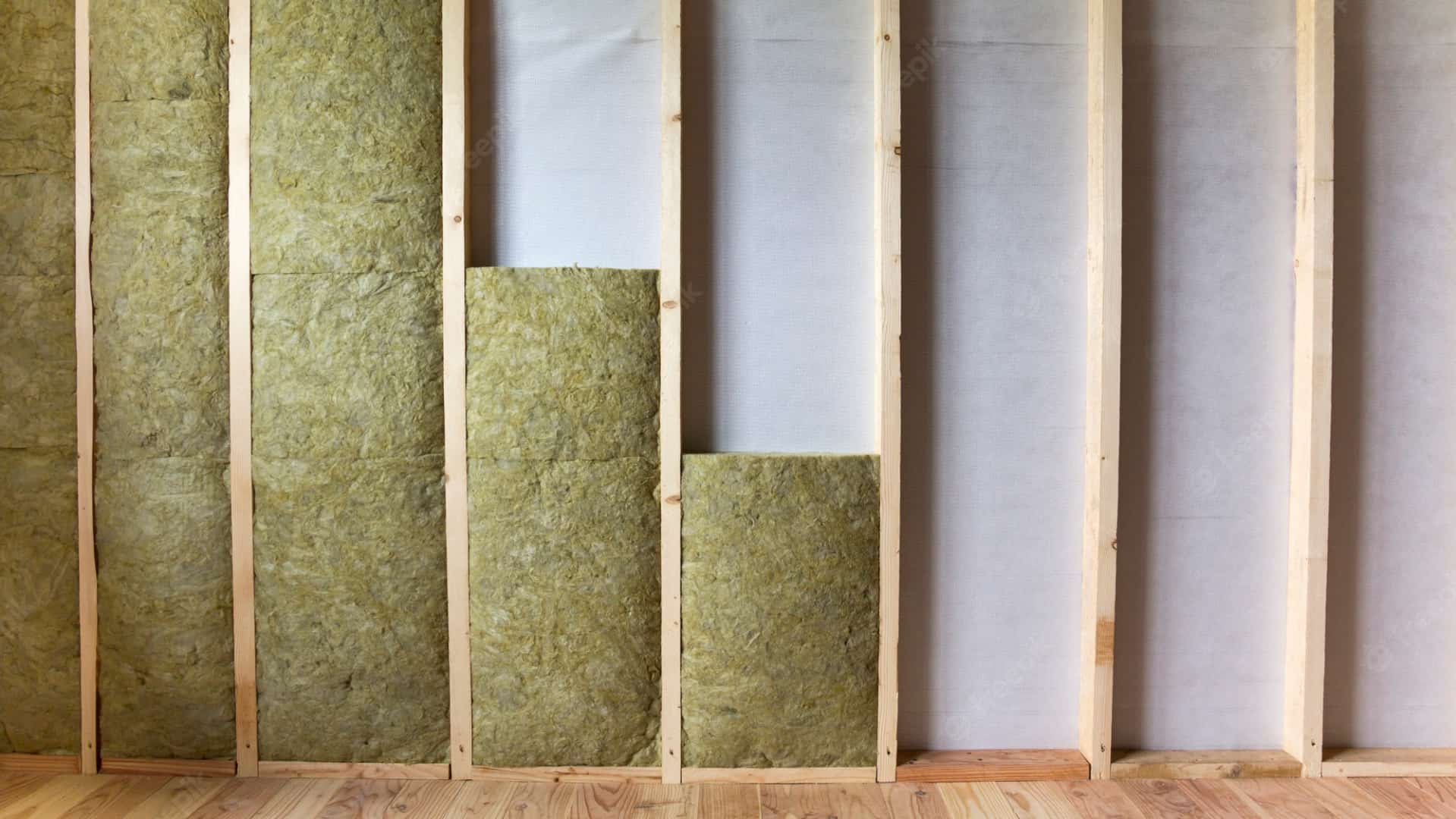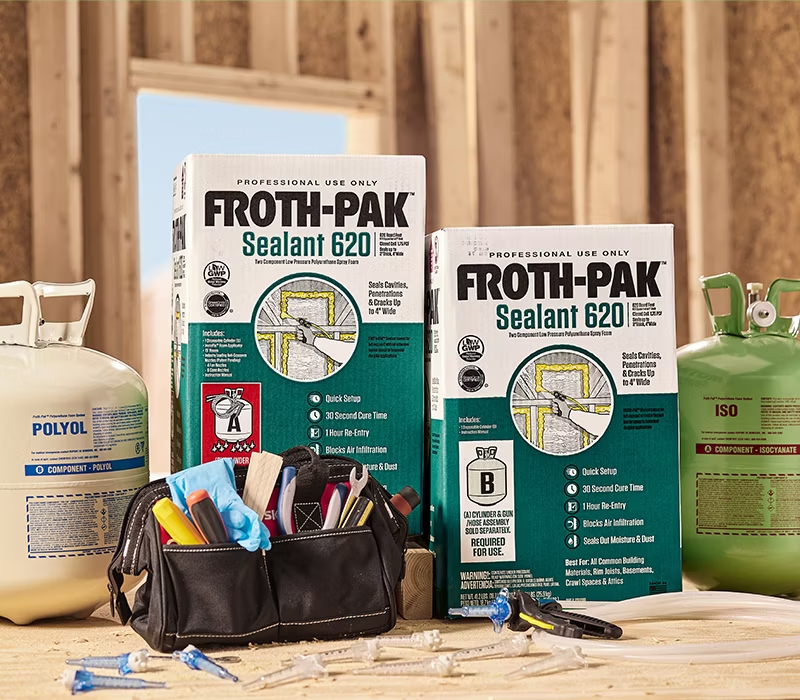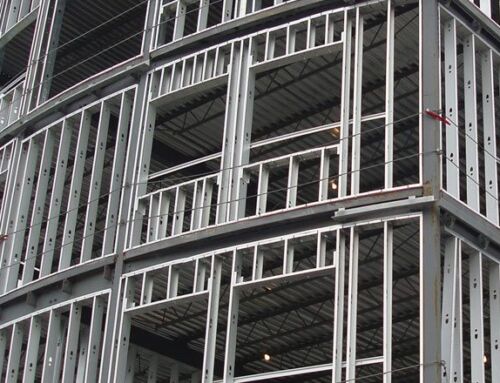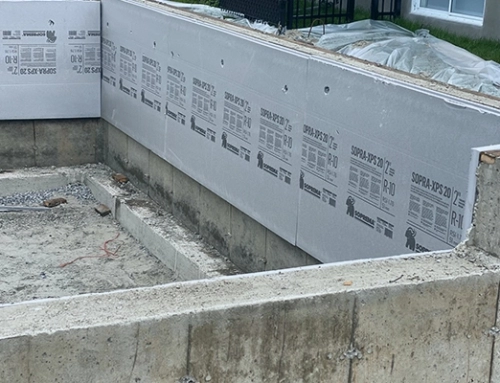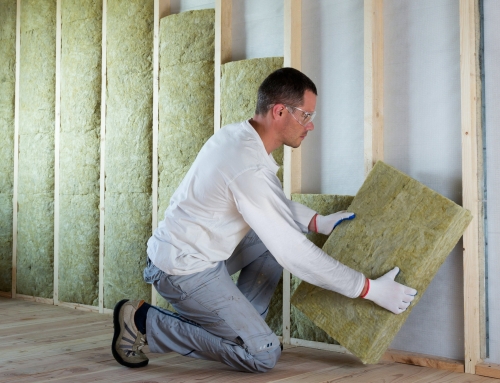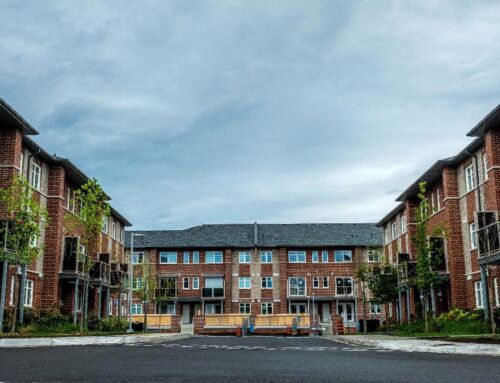When choosing insulation for your home or building, understanding R-value is key to making informed decisions.
R-value measures thermal resistance, or how effectively an insulation material can prevent heat transfer. Higher R-values indicate better insulation performance. With constant advancements in building codes and energy efficiency requirements, selecting the right insulation materials is crucial. This article will guide you through the concept of R-value, how it is calculated, factors that affect it, and how to choose the right insulation (for interior or exterior), highlighting products from leading manufacturers such as Soprema, Rockwool, Johns Manville, Certainteed, Alleguard, and our new offering, Froth-Pak.
Understanding R-Value – What is it?
R-value measures how well an insulation material can resist heat flow. The higher the R-value, the more effective the insulation is at preventing heat transfer. Different types of insulation materials have varying R-values per inch of thickness, making it essential to consider R-value when selecting insulation for specific parts of a building.
Factors That Affect R-Value
While R-value calculations seem simple, several factors can affect their accuracy and effectiveness:
- Moisture: Moisture can reduce the R-value as wet insulation conducts heat more easily than dry insulation.
- Air Leaks: Unsealed gaps can diminish the effectiveness of insulation. Ensuring an airtight seal with products like Soprema's Sopra-foam products can help maintain optimal R-value.
- Compression: Compressed insulation can lose its R-value. It's essential to install insulation properly to maintain its thickness and performance.
- Age and Degradation: Insulation can degrade over time, lowering its R-value. Regular inspections and replacements are necessary for maintaining efficiency.
How to:
Calculate R-Value
R-value = thickness of insulation (inches) / thermal conductivity of insulation (BTU/(hr·ft²·°F))
For example, if you have insulation that is 6 inches thick with a thermal conductivity of 0.24 BTU/(hr·ft²·°F), the R-value would be:
R-value = 6 / 0.24 = 25
R-values are additive, meaning the total R-value of multiple layers can be summed to achieve the desired insulation level.
Choosing the Right Insulation
Different building sections require different insulation strategies. Below, we explore the best insulation options for exterior, interior, and basement walls, highlighting products from leading manufacturers.
Insulation for Exterior Walls
Exterior walls need continuous insulation to ensure energy efficiency. Products like Soprema’s polyiso boards and Rockwool’s mineral wool panels provide high R-value per inch and are resistant to moisture and fire. For example, polyiso has an R-value of approximately R-6 per inch, making it an excellent choice for exterior walls where maximizing thermal resistance is crucial.
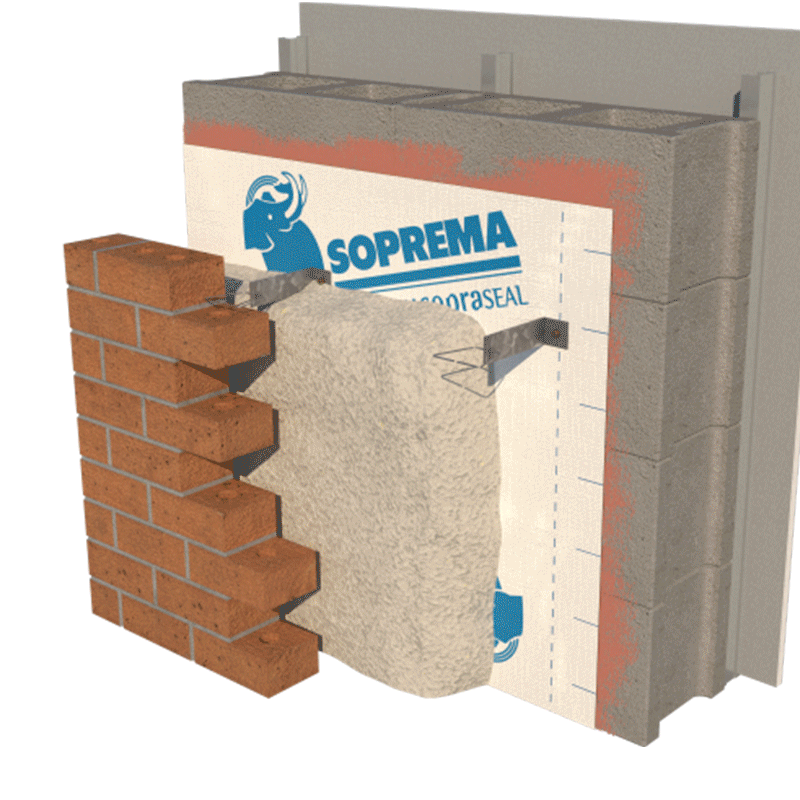
Insulation for Interior Walls
For sound insulation and added thermal resistance, products like Rockwool’s batt insulation and Johns Manville’s fiberglass batts are ideal. These materials are easy to install and provide reliable R-values ranging from R-3.2 to R-4.0 per inch.
Insulation for Basement Walls and Foundations
Basements and foundations require insulation that can withstand moisture and maintain performance over time. Dupont's spray foam offers excellent R-values, up to R-7 per inch for closed-cell foam, and creates a seamless barrier against air and moisture. Rockwool's mineral wool boards also offer water resistance and soundproofing properties, making them a suitable choice for basement insulation.
Most Efficient Types of Insulation Based on R-Value
The type of insulation you choose will depend on your project’s needs and your local building codes. Below is a comparison of the R-values for different insulation types.
Rigid Insulation
Rigid Insulation
Rigid insulation boards, such as those from Soprema and Johns Manville, are highly effective and offer consistent R-values. Polyiso boards, for instance, provide R-values up to R-6.0 per inch, making them a top choice for exterior walls and roofs. Mineral wool boards from Rockwool, with R-values around R-4.2 per inch, offer excellent fire resistance and soundproofing.
Batt Insulation
Batt Insulation
Batt insulation, such as those from Rockwool and Johns Manville, provides a range of R-values suitable for interior applications. Rockwool batts are known for their R-value of around R-4.0 per inch and offer fire resistance and sound absorption.

